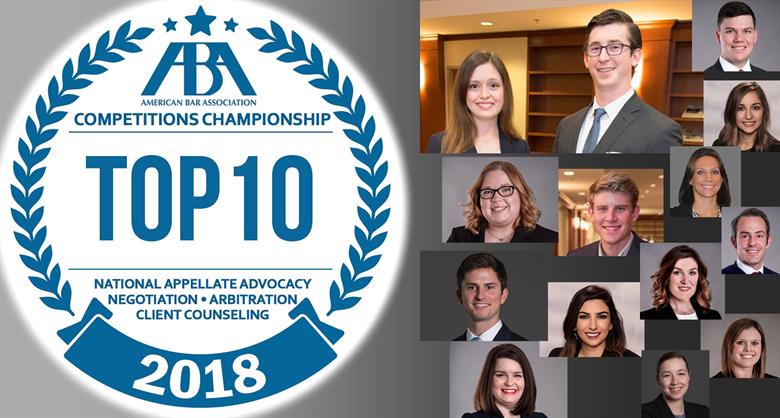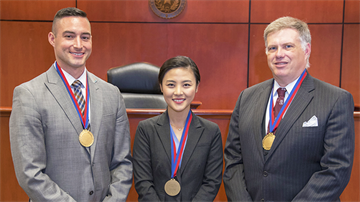Competition Teams
News
Texas A&M Law Places in Top 10 in ABA Competitions Championships

Texas A&M University School of Law earned a top 10 finish in the American Bar Association (ABA) Competitions Championships for achievements and participation in arbitration, negotiation, client counseling and national appellate advocacy competitions.
Read more.
 Representing our school at advocacy competitions is an excellent way to practice the skills you will need as an attorney. You will work with local attorneys and professionals, forming professional networks that may assist in future job searches. Having strong written and oral skills is vital to a successful law career.
Representing our school at advocacy competitions is an excellent way to practice the skills you will need as an attorney. You will work with local attorneys and professionals, forming professional networks that may assist in future job searches. Having strong written and oral skills is vital to a successful law career.
Texas A&M School of Law will send teams in a combination of the three advocacy disciplines (moot court, mock trial and ADR) to competitions each school year. The competitions in which the school participates are selected by the Director of Advocacy Programs, in consultation with the Associate Dean for Experiential Programs or the Advocacy Programs Oversight Committee, based on competition prestige, previous success at the competition, administration of the competition, topic and location.